Do you or your partner come from a different country? Or maybe, you’ve always had a hard time learning a new language in school; you love traveling, and you wish your kid could do better? Are you wondering whether to raise a bilingual child, but you don’t know if it’s a good idea, and where to start from? When our kids were born, we were living in France. We would only speak Italian at home. And I started worrying: is my child going to have problems because of this? Will she still integrate easily? I discovered, many parents ask the same questions.. Let’s look at myths, truths and tips about why you should raise a bilingual child.
Table of Contents
#1.Should you raise a bilingual child? It will allow your kid to speak to more people
Most of our closest relatives only speak Italian. In the city we currently live in, most people only speak French. So there was no other option : other children had to learn both.
Of course, if your spouse’s family comes from a different country, and you really want to avoid any relationship, than you shouldn’t raise a bilingual child. Forget everything about their language, their origins, their culinary tastes. They’ll probably hate you forever, and you’ll be sure never to see them again.
Or else: if you want your child to stay glued at your side for years to come, forever afraid of leaving the country for fear of not understanding all those weird people making those nasty sounds, then please don’t ever let your child hear anything else other than your language. No traveling, no music, no foreign movies. What’s outside your country, anyway?
Myth : When you raise a bilingual child, it will only create confusion in her head
At some point, I remember wanting to teach my oldest daughter some English. I then started to speak English after I’d pick her up from nursery school.
She was probably about 15 months at the time; we would leave our bikes in the common parking space at the bottom of our building, and there I’d go.
“Let’s go home! Did you have fun today? So, 1,2,3, hop! Let’s run upstairs!”
At first, she would just stare at me with a quizzical look in her eyes. Then, she started getting angry at me for such a betrayal.
And I started assuming, I was expecting too much from her. There she was, learning Italian at home, French at school; and now her crazy mom starts throwing her those empty English words.
I felt a bit stupid and guilty, and after a few days, stopped with the experiment. Truth is, she ended up learning both languages just fine; and when we temporarily moved to Germany, she finally learned English as well, and she’s now willing to speak it with us at home. She’s not confused : she perfectly knows which one is which!
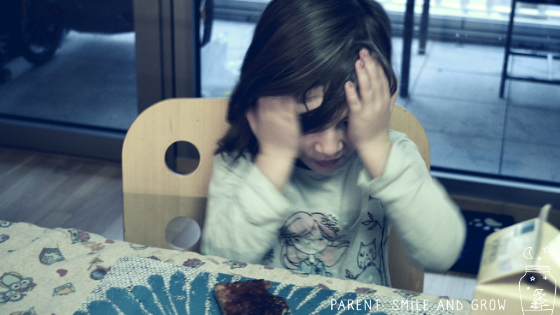
Truth : Kids differentiate easily one language to the next one
The reason why I decided to write a post about bilingualism is that I recently did an interview with an Australian bilingual friend, Judith, whose title is “Why aren’t languages in all child-care centers?”. (You can watch it here; or simply listen to it here 🙂
Now, Judith has been introducing French in childcare centers for about 20 years, through games, plays, songs, and different activities, and she’s now leading a project to support early childhood educator in speaking their 2nd language with the children.
In the interview, she shares some interesting anecdotes about her experience with multilingual children. (And by the way, you can learn more about her activity through her website and her Facebook page).
Not only they never get confused about which language they should speak; they are actually the ones memorizing new words FASTER.
Those kids are curious about other ways of saying things; they are eager to show the new words they’ve heard; they have fun playing with the sounds.
There was a little 2-year-old Chinese boy, only speaking Mandarin at home, who caught up with his peers in English in 6 month; AND easily started playing in French during their weekly session.
Or a little girl, Dutch father and Spanish mother, perfectly speaking English, who happily played tricks and games to her parents who couldn’t always guess the right French translation of words when riding in the car.
My own kids started asking me, after some time : “Mom, which language do we need to speak with the friends that are coming over?”
And they knew which one was which.
Feel like we could keep in contact? Come on in 🙂
#2.Your child will share a partially different culture
Language inevitably conveys some of the main characteristics of a culture. If you ran away from your own country, why would you bother??
Would you really want to share with your kid your traditions, your jokes, your grandma’s ol’ sayings and maybe, even her secret recipes? Let’s forget everything and dig deep into our safe conformism!
Because let’s face it, kids ask SO. MANY.QUESTIONS. They will ask you : why do they say it in this way?
And then you’ll need to explain something about the country’s history. Its development; its literature. Do you really want such an open-minded kid?
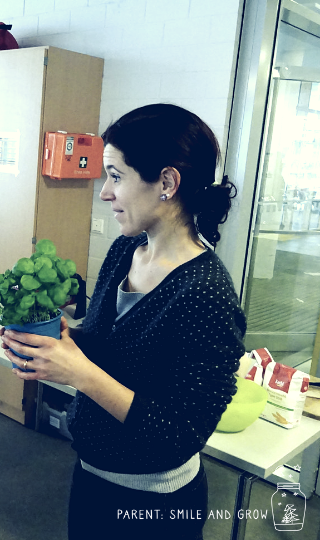
Myth : A bilingual child will never completely fit in any of the cultures she shares
This will mostly depend on how your child feels. If she feels considered and accepted in both language-groups, than she will enjoy being part of more than one community. She may, of course, have a “preference” for one of the group (Usually her first language).
Problems may arise for those minorities towards which the country of adoption has a conflict (Say an ex-colony towards the motherland) – where the individual may feel “unwanted” in both countries.
But in neutral conditions, the more cultures your kid understands, the easier it will be more her to mediate and clarify misunderstandings.
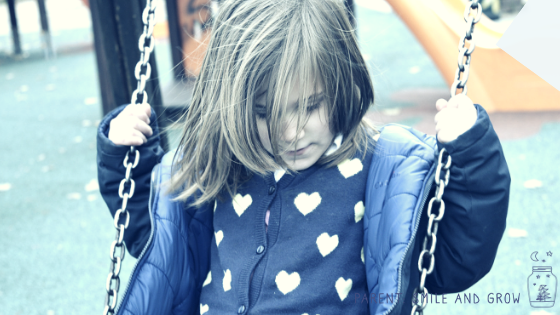
Truth : Knowing more than one way of expressing yourself expands your understanding
You know how we all have stereotypes on people from different countries, which in general always have a bottom of truth in them?
Say, French people are pessimistic, Italians are chaotic and disorganized, Americans are enthusiastic, energetic and always give you a chance no matter who you are, etc?
Well, when you get to know a language and its culture well, you start noticing a change in your attitude when you use it.
When I went living in the US, I was a very insecure teenager on my first experience away from home. I was mostly shy and reserved. Yet, the more fluent I became in English, the more I could openly express my feelings; and the more I’d say to myself things like, “You can do this!” “Way to go girl!” and similar sentences I’d never have dared thinking in my own native language.
When I moved to France, I discovered “personal development” and life coaching and mindfulness. Suddenly there was a lot of awareness to my inner world, and philosophical thinking about life, with a vocabulary and a honesty that, again, I didn’t have in my own language.
So now I use it in my own favor: if I need to be precise with the specific words I use, or if I want to connect with a child, I use my native language.
If I need to believe in myself and feel empowered, I go with English.
On the other hand, if I want to search for my inner motives and drives, I go with French. And the separate use of each means of expression actually allows me to expand my understanding on myself!
#3.Your child will learn way too many things about the world
When we were living in Germany, my children went to an international school, where many nationalities were actually represented. And since many people were there because of their parents’ jobs, sometimes they’d leave at mid-term.
Then my children would ask me: “Where did Martha go?” And I’d show them on the world map we have in our living room.
“See? it’s on the other side of the world. Very far away. Remember what your teacher showed you with the ball and the lamp? About the fact the the earth is kind of like a sphere, and as it turns, different sides see the sun or the moon? When for us it’s evening, for Martha is morning. Where she lives now, they speak another language, you know?”
The same would happen when a new kid would come, and maybe shared some words in her language.
Or the parents would bring a special treat for the kids to eat, explaining why it’s typical in their country. See how many things your kid can learn when hearing a new language? Forget it. Ignorance is the key for living a quieter life.
Why not joining our community of parents for mutual support ?
Myth : Bilingual kids tend to have problem in school
I recently read a book about bilingualism, and there was a very interesting chapter about the science behind bilingualism.
Researchers at the beginning of 20th century believed that brain’s capacity for learning was limited, and that therefore, bilingual (or worse, multilingual) children would then have less potential for acquiring other competencies and knowledge.
The experiments they conducted at the time were biased, in the sense that the groups of people they took weren’t identical.
For instance, they would compare a group of children that were part of a minority, whose families were of inferior social position and means, with a group of monolingual children from wealthy, educated families, and deduce that bilingual children were disadvantaged because of their second language..
In the ’60s, conducted researches were biased on the opposite sense, and people tended to believe that bilingual children would learn better and faster than monolingual kids…
Truth : Bilingual children learn like everyone else!
Who’s right? Well, partly, I’d say that apparently, it’s not that easy to conduct a neutral, scientifically trustworthy research on the topic. But in any case, researchers today tend to agree by saying that the use of more than one language doesn’t interfere with a child’s learning capability.
#4.Should I raise a bilingual child? But my kid is too young / too old!
Remember how I failed into speaking in English with my daughter? I was feeling guilty either way : on one side, I thought it’d be overwhelming for her; on the other hand, I was sad about losing this opportunity.
Then I actually reminded myself of the fact that hey, I ended up learning my 2nd and even 3rd language later on in life. I wasn’t raised as a bilingual child at all! Yet, this hadn’t prevented me from learning WHEN I NEEDED IT.
So yes, maybe your child is too young or too old. If she doesn’t have or feel neither the need or the interest for using a different way of communicating.
Myth : Learning a second language from birth will delay speech
Remember what I was saying about research on bilingualism on the previous paragraph? The same applies here.
Hearing more than one language, even from birth, doesn’t interfere with the “speed” in which they learn to talk.
You know, usually babies tend to either develop their motor skills first, and then speech, or the other way around. So those who learn to walk early will generally begin talking later, and vice versa.
Here’s the story. My daughter started crawling at 6 months. She was fearless and would easily climb anywhere. She said her first word at about 12 months, but then she wouldn’t develop her speech much. And I thought : “It must be because she’s learning 2 languages at once”.
Then, I had a son. Who walked at 15 months and would easily stumble and fall ALL.THE.TIME. And who picked up his two languages at incredible speed.
At 2, he was able to talk to me about his feelings. So no, your child will develop at his own rhythm regardless of how many languages he hears! (And see all the examples Judith told us about!)
Truth : Using more than one language, regardless of the age we start learning, prevents dementia
Recent studies have proved that the exercise your brain must do when you have to speak a different language, actually activates specific areas of the brain. Multilingualism appears to help patients compensate with their memory loss by using alternative networks.
#5.If you raise a bilingual child, diversity will become the norm for him
Yes, children will get used to the fact that you can name the same things in many different ways. That a word can have many sounds.
In my children’s classes, kids come from so many parts of the world.. It has become normal for them NOT to be surrounded by people “just as like as”. And yet, they feel part of the same community. They are friends. Different is normal.
Connected : Why accepting differences is so hard, and yet the best lesson you can gift our children with
Myth : Learning more than one language will create confusion
When living in Germany, we made friends with a South-Korean couple. Our only common language was German, but none of us is really fluent so we kind of created our own way of communicating. My kids only know a few words in German, but they never bothered: they learnt about 2 or 3 key words (Again! Come! Play) and then used either English or Italian to involve our friends into their games.
Truth : mixing up words and expressions when using more than one language is NORMAL. No confusion, just play!
Yes, I do mix the languages I know. But only with the people who also know the same languages. And I have a lot of fun when I invent new ways of saying things!
When my kids were learning the 2nd language, they’d also mix. They would, for instance, conjugate a French verb with the Italian suffix. Or take the Italian root and transform it in the French tense. It was so funny!
And I was just amazed at how my kid wasn’t afraid of trying, inventing, testing, twisting words, experimenting with the language, and simply trying to communicate.
Maybe purists will think it’s no good, but I believe language is just a means of expressing ourselves.
Do you still want your children to learn a 2nd language? Here’s some tips!
If I haven’t succeed in changing your mind, and you still think it’s a good idea to raise a bilingual child.. Hurrah!! Keep this in mind:
-
It’s no big deal if you don’t know the language yourself. You can actually learn it with your kid! Repeating words, singing songs, playing games..
-
Your kid must feel a need for using the language. Whether she’s with a carer who speaks a different language, whether it’s a mean for playing with other kids..If the child knows she can use her first language to be understood, she’ll save herself some effort.
-
Show languages are fun and interesting! Like my friend Judith said, when kids spend an enjoyable moment with the language, they’ll associate it with something positive, and will be more willing to truly learn it.
-
There are different methods for teaching your child a 2nd language. It can be that one parent share one language, or that school conveys the language vs the language that’s spoken at home; the 2 languages can be learnt at the same time, or in successive periods. No matter what the method, for it to be effective it must include some interaction between your kid and another person. Just putting your baby in front of a TV show is not going to help her learn the language. The child has to actively use it 🙂
-
Give it time. Yes, children may learn easily, when the language is part of their play time; but just as it takes them years to start speaking fluently in their 1st language, the same occurs with the 2nd one. It is a gradual process!
The multicultural dream
When both Judith and I shared our mutual experiences, we were both wondering: since we only see positive long-term consequences of sharing more than one language with the children, why isn’t this done systematically in childcare centers, nursery schools, preschools, within the families? Bilingualism teaches so much about integration, the beauty of diversity, human nature’s interesting depth..
That’s our dream. A world where origins, culture and traditions aren’t something to be ashamed of. Where language is one way of expressing who we are, and sharing it with others; and differences are interesting. A world where we feel part of the same community of Humans.
Resources and references
I share with you some articles that I have taken as a reference, and useful readings as always! Links to Amazon in this page are affiliate links.
But first, I ask you 3 things:
-
Share this post if you found it useful!
-
What do you think? I’d really like to hear about your experience 🙂
-
You liked the article and you’re interested in joining the club and receiving food for thoughts and inspiring suggestions directly in your inbox? It’s over here!
Articles:
-
An awesome guide for raising a bilingual child. Truly complete and in-depth.
-
Why it’s so important for your child to speak your language.
-
Want to know more about bilingualism? The 5 top myths!
-
Many resources from the American Speech-Language-Hearing association
-
Why not deepening the benefits of raising a bilingual child
-
A spot on the bilingual baby
-
All the different methods to raise a bilingual child, with their pros and cons.
-
Do’s and don’ts when you decide to raise a bilingual child.
Books :
Note : I haven’t personally read all of them, but I spent some time checking customers’ reviews of many books and made a selection of those I feel comfortable in suggesting these, as I would if offering them to a friend.
-
-
“Bilingual: Life and Reality” is the book I just finished reading. While I was expecting more facts about the ways our brain works, the book is interesting and well written.
-
-
-
Rita Rosenback, author of “Bringing up a bilingual child“, created an online community where parents of bilingual children can give each other support. Check it out!
-
-
-
“Be Bilingual - Practical Ideas for Multilingual Families” seems like a very complete guide when it comes to bilingualism. A good starting point!
-
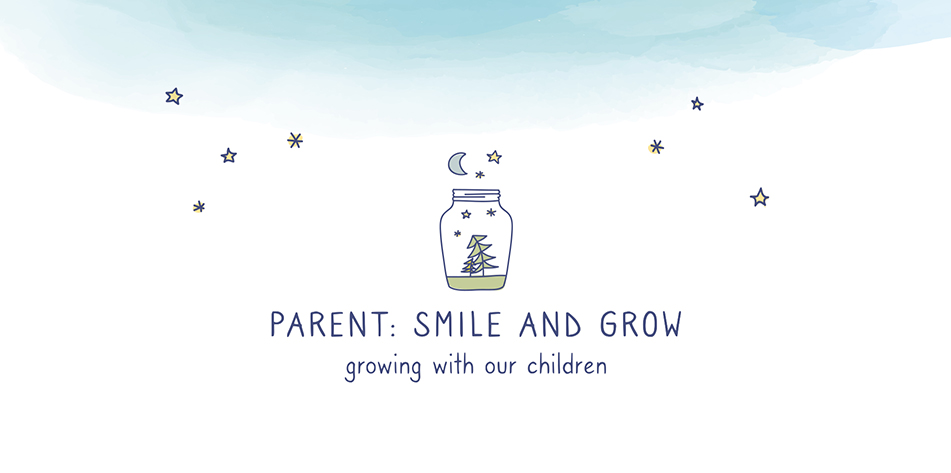
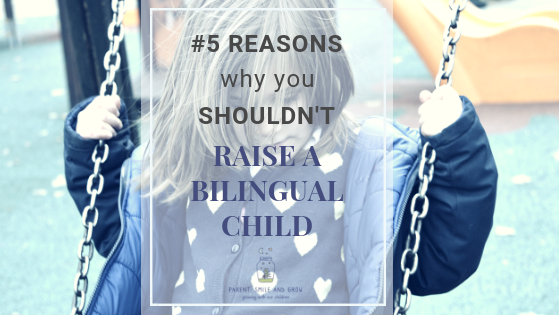
I have mixed feelings on the subject. Part of me wants to raise a bilingual and a part of me doesn’t.
I grew up with an Ecuadorian mother and a father from Australia. I didn’t learn the language growing up. My mother’s family live in the US but I didnt really know them. There was no incentive to really learn the language. When I was a kid the kids that spoke Spanish stuck out as the Spanish kid that cant speak or wouldn’t be easliy understood. Of course who actually envies that as a kid when all you want to do is fit in. Im personally ok with not knowing Spanish.
I am thinking about maybe helping my child to be bilingual since my husband is from Guatemala. Alot of his family that crossed here have no interest in assimilating here. (They are here as econonomic migrants.)For example the his niece Julissa has been attending school going on 5 years here hasn’t learned even basic English. If my daughter wanted to communicate with them she would need to learn Spanish. Even if I do it …is it really a good idea to help her learn to talk to people who prefer to just there own. Also I dont exactly get along with everyone of his family members.
I also don’t want learning Spanish to change how she would see her self (She’s only 10 months now). I want her to be proud she American. Not to see her self as simply Spanish. With all tension mounting in this country being Spanish is not seen a great thing right now amongst some groups. By labeling her self like that she could potentially make it easier for people to bully her. I personally had seen people say very racist things about spanish people. They clearly didnt realize I was half spanish and they didn’t meet my husband. I’m just a little unsure.
Thank you Megan for sharing all this. I really understand. Here where I live, about 70 years ago there was a big wave of migration from Italy, mostly workers in the construction sector. The majority of French inhabitants was suspicious and didn’t like them, so most of them tried to “hide” their origins and didn’t speak Italian to their kids. I so often meet someone who’s from an Italian family not knowing the language at all and wanting to learn it now that they are adults. I can also share my kids’ story: we do speak Italian at home, also because my family lives in Italy and isn’t necessarily fluent in neither French nor English. The kids faced a period where they’d ask me every so often why can’t we go to live in Italy or whether should they be considered French or Italian (since they never really lived in Italy); but mostly, they are just able to communicate with both communities. If you live as American, they’d just follow your example and feel part of a community, but with the ability to speak with the rest of their family if they want to. I’d see it in this way: when you learn something, it’s never wasted. If you need it, you use it; if not, you’ll just have an insight over a different culture which is, in my opinion, just supportive of an open-minded approach to life. There’s nothing to lose. But then I’d say it also depends on your husband and his family: if he wants to share part of his heritage and life and communicate with your daughter in Spanish, it’ll work just fine. I do know of kids whose parents speak different languages to them and they end up learning both – I think mostly it’s a matter of which perspective you share with your daughter. If you tell her about the good things about her heritage (like, culinary traditions) and then also share your story and how grateful you are about living in the US, she’ll just take the open perspective. It would be different if you shared with her resentful comments about it, you know what I mean? I believe, on the contrary, that to fight prejudices against one community or the other and to promote unity and understanding across cultures, it’s very important to share the good things about each community and your daughter will have this chance 🙂 Curious to know your thoughts about this, in any case, good luck!
I love this! My children are learning english, spanish, french and russian while growing up! I feel it is super beneficial for them to learn more than one language. I am only teachng english and russian at home, while they learn french and spanish at school. Being 3 and 5, they pick it up super quickly. I love it!
Wow it’s so great that they’re learning so many languages! yours is a great example! Thank you for sharing it!
As a former foreign language teacher, I can confirm that raising your children to be bilingual is an amazing gift. Children learn so much faster than adults do.
Thank you for Tracy for your testimony!
I regret not learning more Vietnamese as a child and being so resistant to learning it! Hopefully I can learn it now as an adult because I appreciate it so much more as part of who I am: a Vietnamese American
Oh wow yes I guess it would be great to learn Vietnamese now! It would probably tell you so much about your roots. But I understand your older resistance, when a different language makes you feel different in a period of life where you just want to fit in..
I envy those who know multiple languages because it is such a great skill to have.And when a child learns it is so much easier. As your write up also suggests it helps in acquiring new knowledge, new friends, a wider perspective of this world. Great post.
Thank you! I guess what I like is that it helps you communicate with more people and understand them better, even when they come from a different culture. And for my kids, it’s just that they don’t take it from granted that we are “all the same”, but take differences as a normal thing.. I hope it will help them in the future!
Wow! This is a fantastic article. My husband is Guatemalan, and it never crossed my mind that my children SHOULDN’T be bilingual. This inly confirms the numerous advantages.
Oh what a chance! I totally agree, there are so many advantages.. and yet I met so many people who didn’t learn their parents’ language when they were kids, and they regret it now. Different historical moment I guess, but I believe your kids have a great chance in sharing both the languages they parents speak.